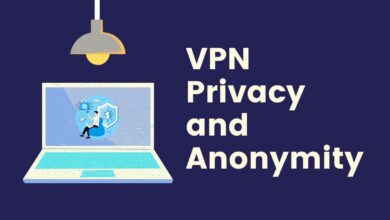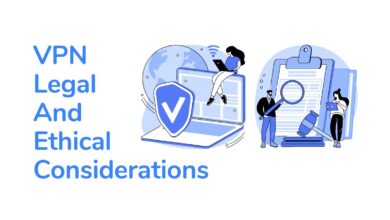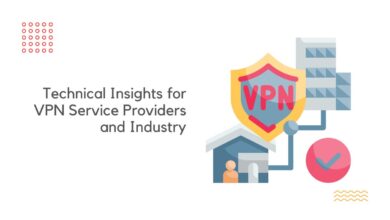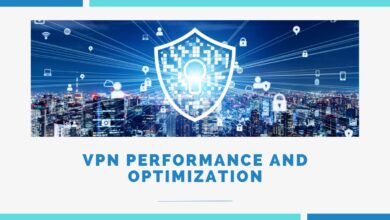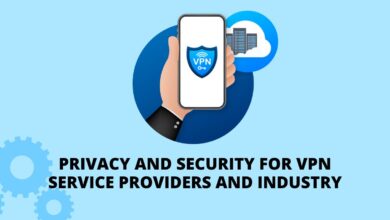VPNs For Different Devices And Platforms
Key Takeaways
-
72% of desktop/laptop users use a VPN, 69% of people use a VPN on a mobile device, and 33% use a VPN on a tablet.[1]
-
The most likely age group to use VPNs is 45 to 60-year-olds, which accounted for 28% of VPN users.[2]
-
39% of Americans use VPNs for either work or personal use, and half of all users say they use VPNs for better access to entertainment content.[3]
In today’s digital landscape, safeguarding personal information and online privacy is crucial. Finding the right VPN service can be challenging due to the multitude of devices and platforms available. Our comprehensive guide reviews VPNs for different devices and platforms, covering user interface, performance, pricing, and support.
A recent study found that 72% of desktop/laptop users use a VPN, while 69% use a VPN on mobile devices and 33% on tablets. [1] Whether for mobile, desktop, or streaming, it provides the details needed for an informed decision. A reliable VPN ensures privacy, access to global content, and secure online transactions. Stay tuned as we explore various VPN providers to help you make the best choice for your particular device needs and usage.
VPNs for Different Devices and Platforms
VPNs, or Virtual Private Networks, are crucial for online security and privacy. They establish a secure connection between your device and the internet, encrypting your data to keep it safe from prying eyes. VPN usage has been steadily rising, with 39% of Americans now using VPNs for either work or personal use.[3]
A major driver of this growth is access to entertainment content, with half of VPN users citing this as a reason they employ a VPN. By masking your location, VPNs allow you to bypass geographic restrictions to stream shows or sporting events not available in your region. Consider the following additional key points:
“Half of VPN users cite access to entertainment content as one of the reasons they use a VPN.”
Device VPNs: Protect All Your Devices
Device VPNs safeguard multiple devices simultaneously, including smartphones, tablets, laptops, and even smart TVs. Install a VPN app or software on each device to encrypt and secure all internet traffic. This is vital, especially on public Wi-Fi networks, where hackers can intercept your data.
Tunneling: How VPNs Operate
VPN core functionality includes tunneling. It involves encapsulating your data in an encrypted “tunnel” before it goes online. The encrypted data travels through the tunnel to the VPN server, where it gets decrypted and sent to its destination. This ensures privacy and shields your online activities from potential eavesdropping.
Online Security: Safeguard Your Data
A VPN heightens online security by adding an extra layer of protection to your internet connection. It thwarts hackers and malicious entities from intercepting sensitive information like passwords, credit card details, or personal messages. With a device-specific VPN on all your devices, browse the web with confidence, knowing your data is secure.
Split Tunneling: Balancing Security and Functionality
Some VPN providers offer split tunneling, allowing users to route specific traffic through the VPN while letting other traffic bypass it. For instance, you can route sensitive tasks like online banking through the VPN while allowing non-sensitive activities like streaming and social media to bypass it. This feature strikes a balance between security and functionality, optimizing your internet experience.
“A VPN heightens online security by adding an extra layer of protection to your internet connection.”
VPNs for macOS
VPNs, or Virtual Private Networks, are essential tools for maintaining online privacy and security. macOS users have a range of options available to them. Let’s explore some of the popular VPNs for macOS and their pros and cons.
ProtonVPN
ProtonVPN is a highly regarded VPN service that offers strong security features for macOS users. It utilizes advanced encryption protocols to ensure data privacy and protection. One of the key advantages of ProtonVPN is its strict no-logs policy, which means that your online activities are not recorded or stored. This provides an extra layer of anonymity while browsing the internet.
In addition to its robust security measures, ProtonVPN also offers a user-friendly interface, making it easy to set up and navigate. With servers located in multiple countries around the world, you can bypass geo-restrictions and access content from different regions.
However, one downside of ProtonVPN is that its free version has limited features and slower speeds compared to the paid plans. While it offers excellent privacy protection, some users may find it slightly more expensive than other VPN services on the market.
Pros:
-
Strong security features
-
No-logs policy
-
User-friendly interface
-
Access to global content
Cons:
-
Limited features in free version
-
Slightly more expensive than other options
“Proton utilizes advanced encryption protocols to ensure data privacy and protection.”
Other Options
While ProtonVPN is a popular choice among macOS users, there are several other VPN services worth considering:
-
NordVPN: Known for its vast server network and fast speeds.
-
ExpressVPN: Offers high-speed connections with reliable performance.
-
CyberGhost: Provides an intuitive interface with specialized streaming servers.
-
Surfshark: Offers unlimited device connections at an affordable price point.
Each of these VPN services has its own unique features and pricing plans that cater to different user needs. It is important to consider factors such as server locations, speed, and pricing when selecting the best VPN for your macOS device.
VPNs for Android
Android devices are widely supported by a range of VPN apps, ensuring privacy and security for your online activities. Leading VPN services like ExpressVPN and Atlas VPN offer dedicated Android apps for easy server connections. Browse securely and anonymously on your Android device.
Multiple Device Support
A significant VPN advantage is the ability to secure multiple devices concurrently. Many VPN providers offer unlimited device support, protecting all your devices under one subscription. Use the same VPN account for your Android phone, tablet, laptop, and even smart TVs or gaming consoles.
Router Support for Enhanced Security
To extend VPN benefits to all home network devices, consider router support or a router app. Setting up a VPN on your router encrypts and protects traffic from every household device. All Wi-Fi-connected devices enjoy safeguarding without individual installations.
Benefits of Using a VPN on Android
Using a VPN on Android delivers several advantages:
-
Enhanced online privacy via encrypted connections and IP address concealment.
-
Bypass geographical restrictions on websites and streaming platforms by connecting to global servers.
-
Secure browsing on public Wi-Fi networks, protecting data from potential threats.
Considerations for Choosing a VPN for Android
Selecting a VPN for your Android device involves considering factors like the provider’s privacy policy, connection speed, server locations, and customer support. Look for user-friendly apps with intuitive features.
“Many VPN providers offer unlimited device support, protecting all your devices under one subscription.”
VPNs for iOS
Numerous VPN providers offer dedicated iOS apps for seamless user experiences. Notable providers include NordVPN, ExpressVPN, and CyberGhost.
Features of VPN Services
VPN services for iOS offer vital features like encryption for data security and global server locations for bypassing geo-restrictions.
Connecting to a VPN Server
Connecting to a VPN server on your iOS device is simple. Open the app, choose a server location, and enjoy encrypted internet traffic with masked IP addresses.
Benefits of Using a VPN on iOS
Using a VPN on iOS delivers multiple advantages:
-
Enhanced online privacy and protection, crucial on public Wi-Fi networks.
-
Bypassing geo-restrictions for access to region-locked content.
-
Improved performance for gaming and streaming by reducing latency and buffering.
Considerations for VPNs on iOS
When selecting a VPN for your iOS device, consider:
-
User-friendly apps for ease of use.
-
Fast connection speeds for smooth streaming and downloads.
-
Pricing plans that fit your budget while offering value for money.
Choosing the right VPN enhances online security and overall experience on your iOS device.
VPN for Linux
Linux users seeking online privacy and security should consider these factors and recommendations:
Top VPNs for Linux
Top providers compatible with various Linux distributions include:
-
ExpressVPN: Known for fast speeds and robust security.
-
NordVPN: Offers extensive server networks and advanced security.
-
Surfshark: Budget-friendly option with unlimited connections.
-
CyberGhost: User-friendly with dedicated Linux apps.
Benefits of Using a VPN on Linux
Using a VPN on Linux provides several benefits:
-
Privacy protection through encryption.
-
Enhanced security against cyber threats.
-
Access to global streaming services.
-
Online anonymity by masking your IP address.
Considerations for Choosing a VPN on Linux
Selecting a VPN for Linux involves:
-
Compatibility with popular Linux distributions.
-
Fast connection speeds.
-
A wide server network.
-
Strong security features like encryption and no-logs policy.
Choose a VPN that suits your Linux device for improved online privacy and security.
“Reputable VPN providers offer fast speeds and unlimited bandwidth when used with routers.”
VPNs for Routers
Using a VPN on your router offers a secure and reliable connection for all connected devices. It encrypts internet traffic, protecting against hackers and surveillance, ensuring worry-free browsing.
Simultaneous Device Connections
VPNs on routers support simultaneous connections for multiple devices in your household without extra costs. Whether it’s smartphones, laptops, gaming consoles, or smart TVs, all benefit from VPN protection and privacy.
Single VPN Subscription
With a router VPN, you only need one subscription for all connected devices, saving money compared to separate subscriptions. Managing one subscription simplifies the process and provides consistent protection.
Fast Speeds and Unlimited Bandwidth
Reputable VPN providers offer fast speeds and unlimited bandwidth when used with routers. Enjoy seamless browsing, streaming, and downloads without buffering or interruptions.
Dedicated IP and Streaming Servers
Advanced routers support dedicated IP addresses for added security and stability. Some VPN providers offer specialized streaming servers for smooth access to platforms like Netflix or Hulu, bypassing geo-restrictions.
Easy Setup
Modern routers offer user-friendly interfaces for straightforward VPN setup. Reputable providers offer step-by-step guides and customer support for configuring your specific router model.
With VPN usage growing across age groups, the 45 to 60 demographic has emerged as the most likely to use VPNs, accounting for 28% of VPN users according to a recent report.[2] Keeping setup easy and accessible is key to drive adoption among this prime demographic seeking enhanced privacy and security.
Guiding all generations through the VPN router configuration process allows users to reap the benefits regardless of technical expertise. Once set up, routers handle traffic encryption automatically in the background, making online protection simple.
Conclusion
VPNs are vital for online privacy and security on diverse devices and platforms like macOS, Android, iOS, Linux, and routers. They encrypt your connection and hide your IP address.
To safeguard data and bypass restrictions, choose a reliable VPN with strong encryption, a vast server network, and user-friendly apps. Consider speed, support, and pricing. Explore VPN options, research, and read reviews to take control of your online privacy and browse with confidence.
Read more about generative AI from our blogs at Security Forward.

